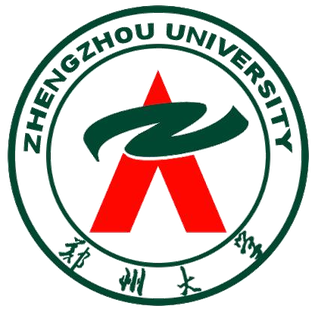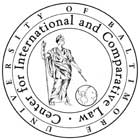
Tsinghua University is a public university in Haidian, Beijing. It is affiliated with and funded by the Ministry of Education of China. The university is part of Project 211, Project 985, and the Double First-Class Construction. It is also a member of the C9 League.

East China Normal University (ECNU) is a public university in Shanghai, China. It is affiliated with the Ministry of Education and co-funded with the Shanghai Municipal People's Government. The university is part of Project 211, Project 985, and the Double First-Class Construction.

The Renmin University of China (RUC) is a public university in Haidian, Beijing, China. The university is affiliated with the Ministry of Education, and co-funded by the Ministry of Education and the Beijing Municipal People's Government. The university is part of Project 211, Project 985, and the Double First-Class Construction.

Zhengzhou University is a provincial public university in Zhengzhou, Henan, China. It is affiliated with the Province of Henan. The university is part of Project 211 and the Double First-Class Construction.

Jilin University (JLU) is a public university in Changchun, Jilin, China. It is affiliated with the Ministry of Education. The university is part of Project 211, Project 985, and the Double First-Class Construction.
Shanghai Normal University (SHNU) is a public research university in Shanghai, China. SHNU is one of the three Key Universities (上海市重点大学) in Shanghai, which are strongly supported by Shanghai Municipal Government.

Osaka University, abbreviated as OU or Handai (阪大), is a national research university in Osaka, Japan. The university traces its roots back to Edo-era institutions Tekijuku (1838) and Kaitokudo (1724), and was officially established in 1931 as the sixth of the Imperial Universities in Japan, with two faculties: science and medicine. Following the post-war educational reform, it merged with three pre-war higher schools, reorganizing as a comprehensive university with five faculties: science, medicine, letters, law and economics, and engineering. After the merger with Osaka University of Foreign Studies in 2007, Osaka University became the largest national university in Japan by undergraduate enrollment.

The New York University School of Law is the law school of New York University, a private research university in New York City. Established in 1835, it was the first law school established in New York City and is the oldest surviving law school in New York State and one of the oldest law schools in the United States. Located in Greenwich Village in Lower Manhattan, NYU Law grants J.D., LL.M., and J.S.D. degrees.

The World Maritime University(WMU), in Malmö, Sweden, is a postgraduate maritime university founded within the framework of the International Maritime Organization (IMO) - a specialized agency of the United Nations. Established by an IMO Assembly Resolution in 1983, the aim of WMU is to further enhance the objectives and goals of IMO and IMO member States around the world through education, research, and capacity building.
The Southwestern University of Finance and Economics is a public finance and economics university in Chengdu, Sichuan, China. It is affiliated with the Ministry of Education, and co-funded with the Sichuan Provincial People's Government. The university is part of Project 211 and the Double First-Class Construction.

The Zhongnan University of Economics and Law is a public university located in Wuhan, Hubei, China. It is affiliated with the Ministry of Education and co-funded by Ministry of Education, Ministry of Finance, and Hubei Provincial People's Government. The university is part of the Double First-Class Construction and Project 211.

The Information Society Project (ISP) at Yale Law School is an intellectual center studying the implications of the Internet and new information technologies for law and society. The ISP was founded in 1997 by Jack Balkin, Knight Professor of Constitutional Law and the First Amendment at Yale Law School. Jack Balkin is the director of the ISP.

Durham Law School is the law school of Durham University in Durham, England. In 2022, Durham Law was ranked 5th in the UK in a league table which averaged the rankings of the Complete University Guide, The Guardian and the Times University League Table. Durham Law School is ranked 42nd in the world for law in the 2023 Times Higher Education ranking and 46th in the world for law by the 2023 QS ranking.

Yōhei Sasakawa is chairman of The Nippon Foundation, the World Health Organization Goodwill Ambassador for Leprosy Elimination, and Japan's Ambassador for the Human Rights of People Affected by Leprosy. His global fight against leprosy and its accompanying stigma and social discrimination is an issue to which he has remained highly committed for more than 40 years. As chairman of The Nippon Foundation, Japan's largest charitable foundation, he guides public-interest activities in modern Japan. Sasakawa received his degree from Meiji University’s School of Political Science and Economics. Sasakawa's father was businessman, politician, and philanthropist Ryōichi Sasakawa.

Xinjiang University (XJU) is a provincial public comprehensive university in Ürümqi, Xinjiang, China. It is a national key university affiliated with the Xinjiang Uyghur Autonomous Region and co-funded by the Ministry of Education and the region. The university is part of Project 211 and the Double First-Class Construction.
International economic law is a dynamic and evolving field of international law that governs the regulation and conduct of states, international organizations, and private entities in the global economic landscape. This field encompasses a diverse range of disciplines, including aspects of public international law, private international law, and domestic law applicable to international business transactions, and domestic laws relevant to international business transactions.
The Fletcher School of Law and Diplomacy is the graduate school of international affairs of Tufts University, in Medford, Massachusetts. Fletcher is one of America's oldest graduate schools of international relations. As of 2017, the student body numbered around 230, of whom 36 percent were international students from 70 countries, and around a quarter were U.S. minorities.
Columbia Global Centers are research outposts established by Columbia University in different locations around the world, as part of its initiative to further establish an international research university. The first of these centers opened in March 2009 in Beijing, China, and Amman, Jordan, and Columbia opened facilities in Paris, France, and Mumbai, India, in March 2010 and Istanbul, Turkey in November 2011. Locations in Nairobi, Rio de Janeiro and Santiago de Chile were opened in 2012 and 2013. An additional location in Tunis opened in 2018.

The University of Baltimore School of Law's Center for International and Comparative Law (CICL), established in 1994, sponsors research, publication, teaching, and the dissemination of knowledge about international legal issues, with special emphasis on human rights, democracy, intellectual property, and international business transactions. Initiatives are coordinated with other University System of Maryland institutions through the System Associates Program and the John Sumner Stead Colloquium on International and Comparative Law. The center hosts a number of visiting lecturers, events, and colloquia throughout the year, including Visiting Fellows in International and Comparative Law on year- or semester-long visits. The two primary public programs are the annual John Sumner Stead Lecture on International and Comparative Law and the Stead Seminar on International and Comparative Law.

Peking University Law School is a law school of Peking University, a public research university in Beijing, China.















